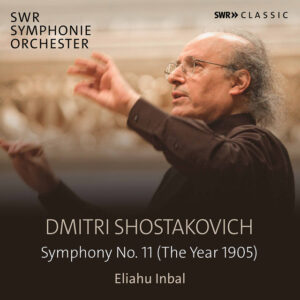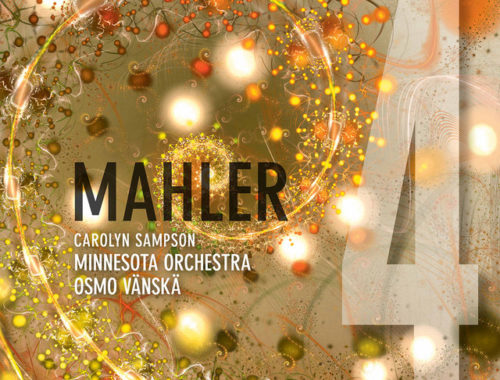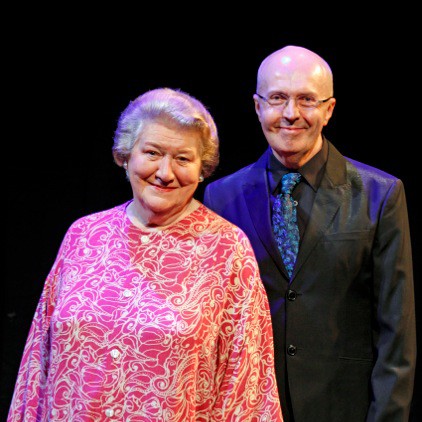GRAMOPHONE Review: Shostakovich Symphony No.11 ‘The Year 1905’ – SWR Symphony Orchestra/Inbal
 You would expect a seasoned Mahlerian like Eliahu Inbal to offer an emotive response to this extraordinary symphony – but I really hadn’t anticipated quite how powerfully he and his young orchestra (the SWR Symphonieorchester Stuttgart is only five years old) would lay bare the subtext of the piece. I swear I could on occasions hear Inbal quite literally humming along with the revolutionary songs that make up – indeed are woven into – the heart and soul of its thematic fabric.
You would expect a seasoned Mahlerian like Eliahu Inbal to offer an emotive response to this extraordinary symphony – but I really hadn’t anticipated quite how powerfully he and his young orchestra (the SWR Symphonieorchester Stuttgart is only five years old) would lay bare the subtext of the piece. I swear I could on occasions hear Inbal quite literally humming along with the revolutionary songs that make up – indeed are woven into – the heart and soul of its thematic fabric.
So regular readers will know how impressed I was – not least with regard to its technical prowess – with last year’s BBC Philharmonic/John Storgards account on Chandos. Indeed it was my ‘Critics Choice’ in December. But where Storgards takes a marginally more objective view of the score rather as a practiced chronicler might recall its events, Inbal seems emotionally invested in ways that are hard to describe but impossible not to feel. Shostakovich was one-year-old when this failed revolution scarred his homeland but the emotional memory of the songs which he carried forward to ‘sing’ again in this symphony is something which Inbal clearly shares.
At the height of the massacre which defined 9 January 1905 the song ‘Bare Your Heads’ roars defiantly through the remorseless onslaught of the percussion battery (super-exciting the screwing of tension and high anxiety here) and the intensity Inbal and his orchestra project through it is overwhelming; that same melody – in the lone cantorial voice of the cor anglais – is the voice of a nation’s despair at the heart of the finale. Again it feels very personal.
But it is in the slow movement – ‘In Memoriam’ – that Inbal’s Mahlerian credentials really come home for him. This is essentially a Mahlerian funeral march without the angst but with all of the pain and Inbal’s Stuttgart orchestra truly attain the ascendency not least in that achingly simple modulation into the major where Shostakovich assumes an almost Schubertian identity.
Russia’s revolutionary spirit is on the march again in the finale (parallels with the first movement of Mahler 6) and as with the massacre sequence Inbal is ‘epic’ in the big central climax – culminating as it does with a flashback to the icy silence of its aftermath. The coda is plain and simply a rekindling of revolutionary spirit with the dissonant major/minor clamour of bells an alarum sounding across the centuries. Personally I wanted more prominence of the bells in this otherwise vividly engineered SWR Classic recording; they really need to cut through as they do so spectacularly in the Storgards and Chandos version. But then again Inbal goes for the shocking cut-off which I much prefer to the prolonged resonance favoured by Storgards and, before him, Rostropovich.
Who to choose? If you love this symphony as much as I do you’ll want both Inbal and Storgards.
You May Also Like

COMPARING NOTES: Julian Ovenden in Conversation
18/08/2020
GRAMOPHONE Review: Mahler Symphony No. 4 – Carolyn Sampson, Minnesota Orchestra/Vänskä
25/03/2020

